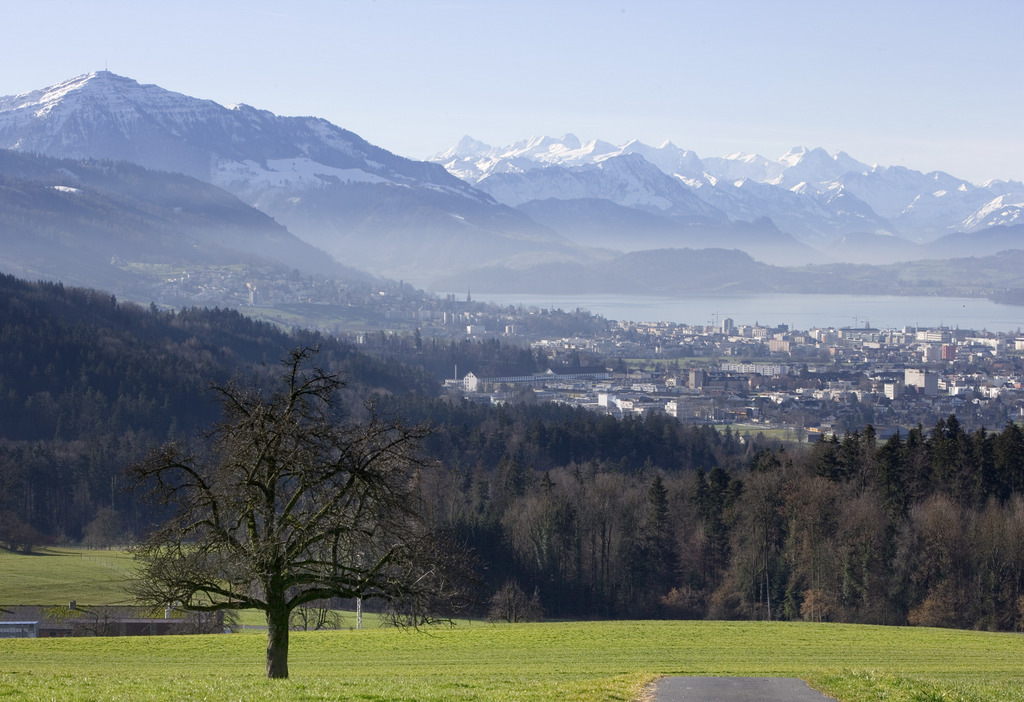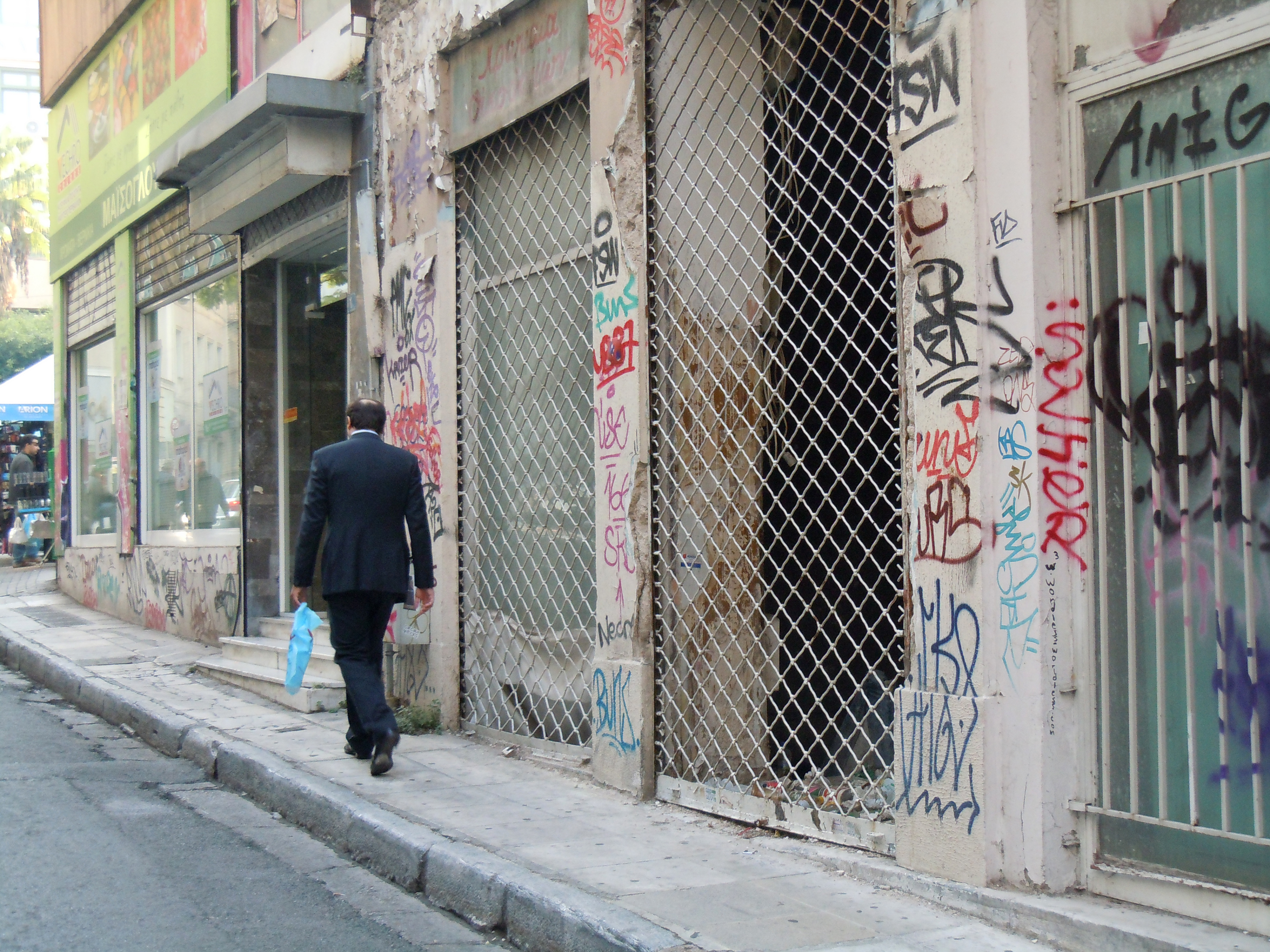How Switzerland is weathering the storm

Switzerland is mastering the current economic crisis better than its recession-hit European peers. To explain the discrepancy with prosperity and unique laws that foster money laundering and tax dodging, however, would fall short.
Switzerland’s unemployment rate is 2.7 per cent, lower than in any other European country, where the rate is an average ten per cent. Its economy expanded for the twelfth consecutive quarter with selective indicators still going strong.
Watch exports climbed 15 per cent in July. Car sales jumped 12 per cent in the six months through June, boosted by demand for luxury cars, while dropping 11 per cent in the European Union.
“In principal, the Swiss economy is doing rather well. Switzerland has weathered the crisis and managed to recover considerably faster than other countries,” Aymo Brunetti, an economics professor at Bern University, told swissinfo.ch.
“It was not affected by a real estate bubble or a credit crunch. It is reaping the benefits of stabilising economic policies introduced a decade ago, which allowed it to be better prepared.”
Clever policies
So, how did such a small landlocked country without natural resources and a difficult geography become so competitive, innovative and prosperous, allowing it to grow into one of the largest banking centres, shipping powers and commodities players?
For experts, it is quite simple: Continual peace, economic growth of its main export partners and successful industries supported by business-friendly legislation have helped the world’s oldest democracy to thrive.
And, its citizens are committed to diligence, high-quality work and entrepreneurship, Zurich University economic historian Tobias Straumann wrote back in 2010, in a notable article “Why Switzerland is a rich country”, published by the State Secretariat for Economic Affairs (Seco).
The Swiss Federal Institutes of Technology are ranked among the top ten universities in Europe, and nuclear research laboratory Cern is situated partly on Swiss territory. Switzerland’s success may be due to serendipity, but also to clever policies.
In the 1990s for example, the government introduced policies to stabilise its economy: a debt break, measures to balance its unemployment insurance, domestic market reforms and restrictions on immigration. Today 23 per cent of the population are foreigners.
Economic policies oriented towards stability and high-quality human capital are two of Switzerland’s self-made strengths, Straumann wrote, noting that Switzerland’s economic success is due to fortune as well as good judgement.
Switzerland – one of the wealthiest nations in the world today with a per capita income of about $80,000 (SFr76,000) – used to be a poor country, particularly in the Alps, which remained destitute well into the 19th century, forcing citizens to seek work as mercenaries and families to emigrate to Russia and the New World.
The country owns some main transit routes and water divides, but never had any commodities to speak of. This may have been its fortune.
Countries rich in supplies suffer from the resource curse; they tend to struggle with the creation of new jobs and industries because of short-term wealth. In addition, resource exploitation boosts the national currency, bringing down the manufacturing sector – a phenomenon economists call the Dutch disease.
Neighbours
The Alpine country’s export focus goes back to medieval times when it specialised in dairy production, paving the way for the milk powder and chocolate companies. The Huguenots, expelled from France in the 16th and 17th centuries, helped create the watch and textiles industries.
Today, more than half of exports go to Europe, and Germany is its largest trading partner. While Switzerland may politically be an island, its economic fate depends on its neighbours. Should economic growth in Germany weaken further, it will become difficult for the exporting industry, Straumann said.
“At the moment, Switzerland is not the master of its own destiny,” Boris Zürcher, chief economist at BAK Basel Economics told swissinfo.ch. “Switzerland’s fate very much depends on what is happening in Europe.”
For the moment, Switzerland is still holding its ground because important export industries such as pharmaceuticals and watches are relatively resistant to crisis.
While overall exports continue to rise, the country’s largest sector, the engineering industry with thousands of specialised small and medium-sized players, however, is starting to feel the crunch. First-half sales rose 1.4 per cent, as orders fell 11 per cent.
Swiss mantra
Experts do not predict another recession for the moment, but a collapsing euro and a banking crisis would have the most devastating effects on Switzerland.
“Switzerland would not be able to elude a break-up of the eurozone, its most significant trading partner; it would head for a recession,” warned Brunetti. “A collapse would lead to unparalleled slumps all over Europe.”
Stability is Switzerland’s mantra. Thanks to social peace and citizens’ rights it has a low number of strikes. Through cautiousness, cream-skimming or a wait-and-see attitude, it has not joined Nato or the EU and was one of the last United Nations members.
Traditionally associated with cleanliness, fairness, and reliability, Switzerland did, albeit, over the past decades make headlines with less glorious stories such as its tarnished role during the Second World War, the grounding of its national airline or its controversial banking secrecy legislation. Still, history has shown that the Swiss are able to learn from mistakes and come out of a crisis even stronger.
“There is much evidence that the Swiss economy will continue to be outstandingly successful in the future,” Straumann said back in 2010. “There is no prospect of an end.”
Recent history seems to be proving him right.
Switzerland has close relations with the European Union on political, economic and cultural levels. These relations are governed by a whole structure of bilateral agreements concluded over the years between Switzerland and the EU (and the former European Community).
In a first stage, Switzerland in 1972 together with Austria, Sweden, Portugal and Iceland signed a free trade agreement with the EU. The agreement created a free trade zone for industrial products between the two parties. This agreement is one of the main pillars of trade relations between Switzerland and the EU.
In 1989, Switzerland entered another agreement to open up certain areas of the insurance markets between Switzerland and the EU. In 1999, it concluded seven bilateral agreements to regulate market liberalisations, while the nine bilateral agreements in 2004 aimed at strengthening economic cooperation.
The union and its 27 member states are by far Switzerland’s most important trading partners: about 60% of Swiss exports go to the EU, according to the State Secretariat of Economic Affairs. Major non-European trading partners include the United States with 10%, Japan with 3.6%, China with 3.1% and Turkey with 1.2% of exports.
About 80% of all Swiss imports come from the EU. Switzerland is the third-largest market for EU products and the union’s third most important trading partner behind the US, and China, leaving behind countries such as Russia, Japan or India. Goods worth around SFr1 billion cross the border between Switzerland and the EU every day, according to Swiss Business Federation, economiesuisse.
The country also entered bilateral agreements with Asian countries such as India and Japan to lower its dependence on Europe.

In compliance with the JTI standards
More: SWI swissinfo.ch certified by the Journalism Trust Initiative














You can find an overview of ongoing debates with our journalists here . Please join us!
If you want to start a conversation about a topic raised in this article or want to report factual errors, email us at english@swissinfo.ch.